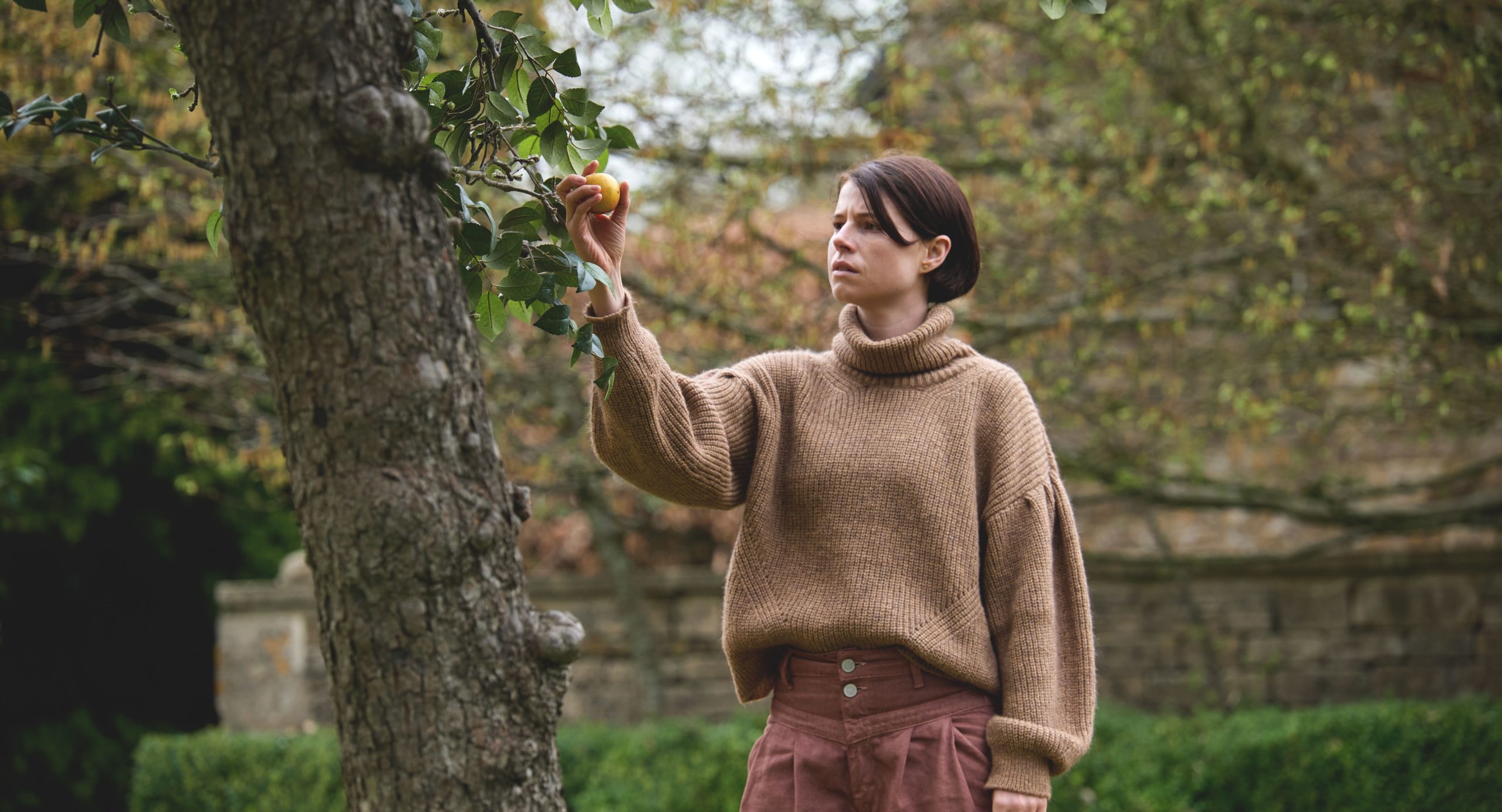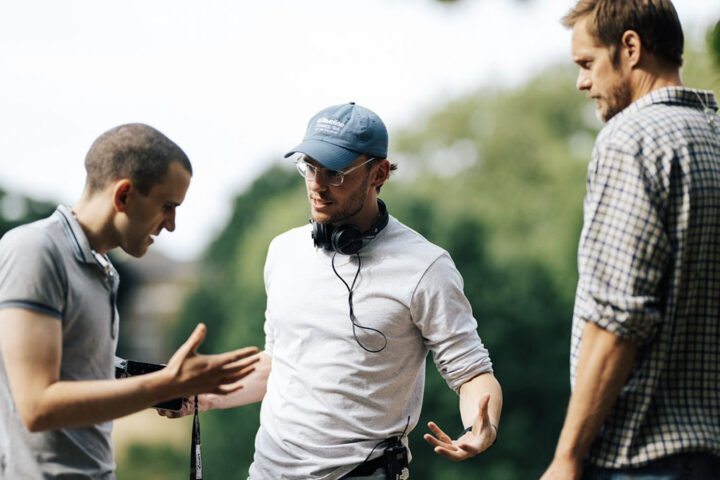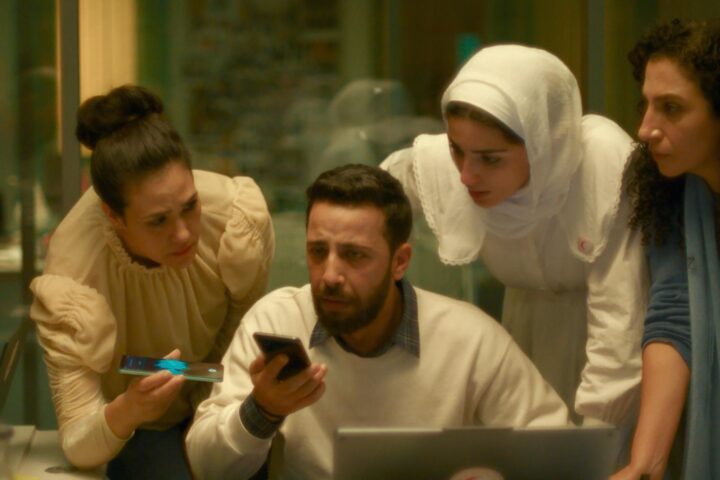Alex Garland’s latest head trip Men, starring Jessie Buckley as a haunted Londoner who retreats to the countryside following a personal trauma, begins strong and becomes less compelling as it resolves. This is mostly because Garland ultimately proves less interested in his feminine enigma than in a very heavy dose of the conceptual. For Garland there may be a thematic point to Men, but after a strong set-up his protagonist gets lost in its pursuit.
Conceptual audacity has been Garland’s hallmark across a pair of terrific, thought-provoking sci-fi pictures—the feminist A.I. hit Ex Machina and the bio danger zone thriller Annihilation. Garland is nothing if not heady, his films always philosophical, scientifically sound parables. This time, he’s crafted a movie that is symbolic, often oblique and heavy-handed, all but trumping its female character. Men is the first Garland picture that feels less interesting as it plods, mostly by virtue of its relentless focus on having Something Important to Say about male-female aggressions. For a hundred minutes, a woman is persecuted and a collection of badly behaving men are her persecutors—and that is about it.
In Men Garland sets his sights on Buckley’s fuzzily defined, put-upon widow Harper, seeking refuge in the English countryside after the shocking death of her husband (Paapa Essiedu), a story that will unfold in orange-tinted flashbacks and one that includes a manipulation that seems to result in tragedy. But just how reliable a narrator is Harper? What is the truth?
On arrival and seeking solitude, she is met by the owner (Rory Kinnear) of her rented cottage, a seemingly amiable eccentric whose awkwardly off-center manner is instantly suspect. It turns out that Kinnear plays multiple “different” men in the film—an ineffective police officer, a threatening local barfly, a mentally unstable vagabond and an insinuating, victim-blaming vicar. Each of these men bears the DNA of a potential threat, all aggressive virility encroaching on Harper’s security and peace of mind. The trick of using Kinnear in multiple roles says one thing, which is that all men in Men (and perhaps just all men) are created equal—that is, equally chauvinistic, equally toxic, equally intimidating. While they may look and sound slightly different, when it comes to women they are truly the same everyman and all up to no good.
Buckley is so terrific at suggesting her character’s damaged neuroses that for a good hour the film is resolutely compelling, and Garland does well with a rising sense of dread, even when he (not kidding) on-the-nose requires his heroine to pick and taste forbidden fruit by way of an apple (the film ensures she will pay for this transgression) or become disoriented in a long, dark tunnel, the light at the end of which is blocked by a shadowy male phantom. Later, a wild series of special effects shocks drive home the shared toxicity of the film’s male characters in a visceral sequence that would, if the picture were not so sophisticated, be worthy of The Human Centipede.
The psychological part of Men is the strongest, Harper lost in the push-pull of potential guilt over her husband’s death, Garland eventually managing a scorching husband-wife confrontation that seems lifted from a better film. The Oscar-nominated actress is up to such heavy lifting, and she makes every moment onscreen vital, even when the film abandons her in its final third.
That’s too bad, because its absorbing to see Buckley playing a tough, unsentimental and (at least externally) unapologetic woman attempting to free herself from the baggage of a demonstrative husband (if this sounds like her nominated turn in last year’s The Lost Daughter, it’s something quite different). But Garland writes little else for her to do, so we never quite understand her. She wanders the forests, drifts into memories, periodically calls her best friend (Gayle Rankin) for support and in key moments attempts to reconcile trauma. But Harper is more construct than character and by the film’s denoument her agency is reduced to horror movie panic; resolution is nearly non-existent.
Garland veers from high drama to mystery to unsettling eeriness to “elevated” horror, but the film never quite cuts loose—it is an overdetermined, controlled implosion. Ultimately, the notion that men are potential threats to women isn’t revelatory (though it is reductive), particularly in a post #MeToo moment. The relentless hammering of this theme eats up screen time that could have better served its fitfully intriguing character, equally marginalized by her onscreen aggressors and her writer-director.
2 stars.



